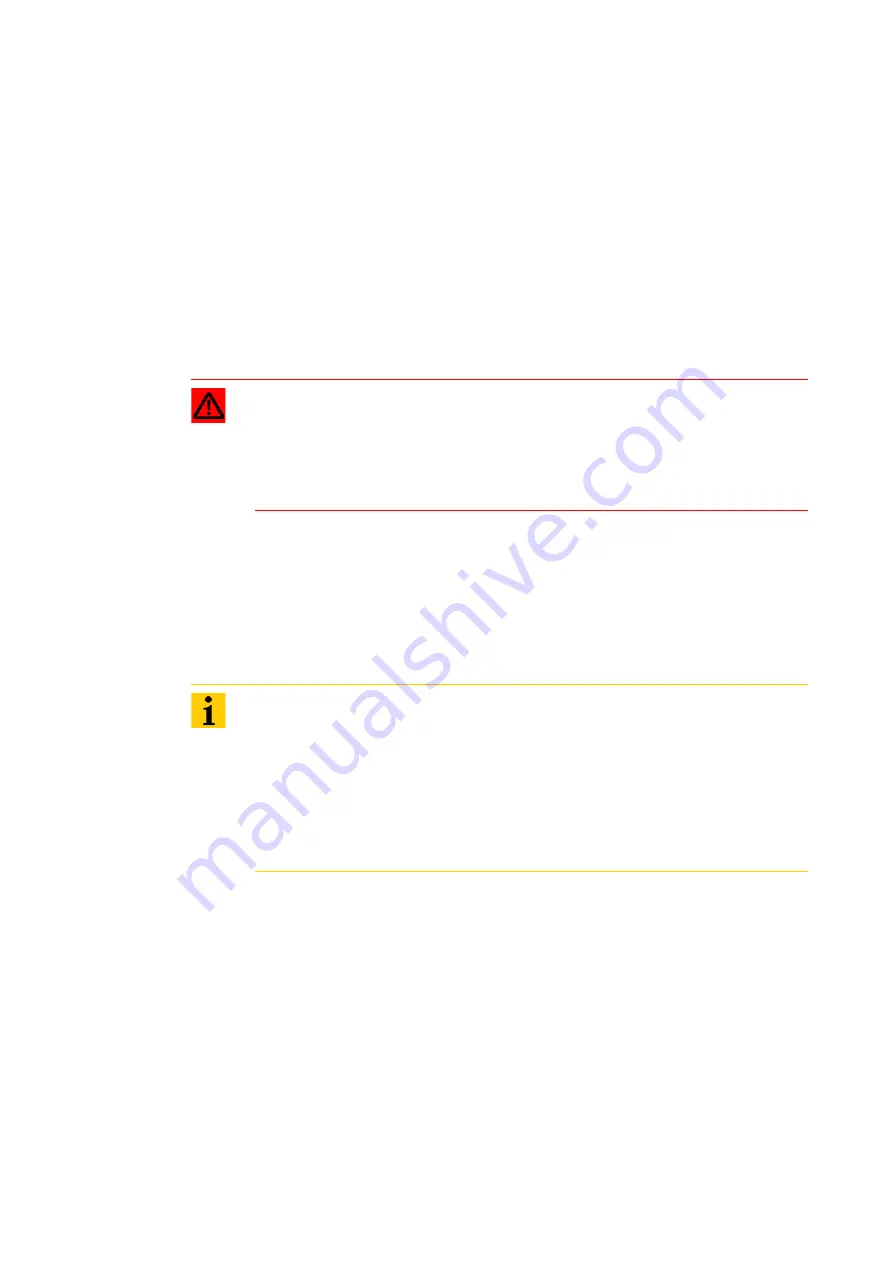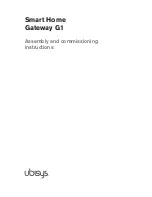
8 Guidelines for Electrical Installation
8.4 Shielding of cables
154
XI/ON: XNE-GWBR-2ETH-MB
10/2011 MN05002008Z-EN
www.eaton.com
8.4
Shielding of cables
Shielding is used to prevent interference from voltages and the radiation of interference fields
by cables. Therefore, use only shielded cables with shielding braids made from good
conducting materials (copper or aluminum) with a minimum degree of coverage of 80 %.
The cable shield should always be connected to both sides of the respective reference poten-
tial (if no exception is made, for example, such as high-resistant, symmetrical, analog signal
cables). Only then can the cable shield attain the best results possible against electrical and
magnetic fields.
A one-sided shield connection merely achieves an isolation against electrical fields.
The insulation of the shielded data-cable should be stripped and connected to the shield rail
when the system is not in operation. The connection and securing of the shield should be
made using metal shield clamps. The shield clamps must enclose the shielding braid and in
so doing create a large surface contact area. The shield rail must have a low impedance (for
example, fixing points of 10 to 20 cm apart) and be connected to a reference potential area.
The cable shield should not be severed, but routed further within the system (for example, to
the switchgear cabinet), right up to the interface connection.
Warning
When installing, please pay attention to the following...
- the shield should be connected immediately when entering the system,
- the shield connection to the shield rail should be of low impedance,
- the stripped cable-ends are to be kept as short as possible,
- the cable shield is not to be used as a bonding conductor.
Note
Should it not be possible to ground the shield on both sides due to switching ar-
rangements or device specific reasons, then it is possible to route the second cable
shield side to the local reference potential via a capacitor (short connection distanc-
es). If necessary, a varistor or resistor can be connected parallel to the capacitor, to
prevent disruptive discharges when interference pulses occur.
A further possibility is a double-shielded cable (galvanically separated), whereby the
innermost shield is connected on one side and the outermost shield is connected on
both sides.
















































